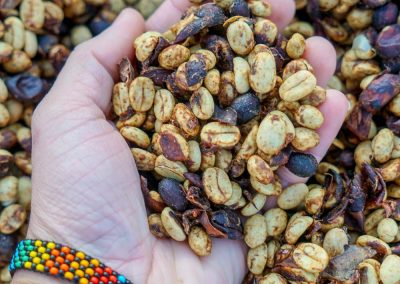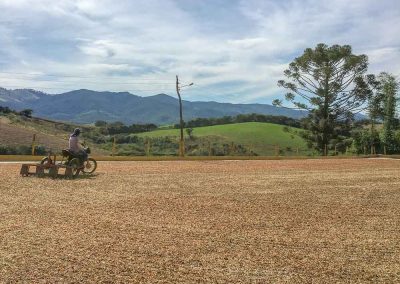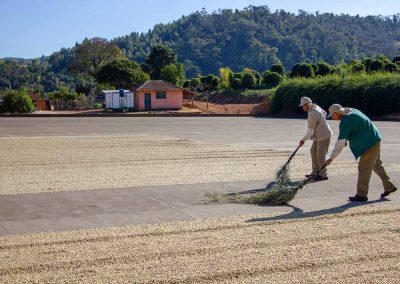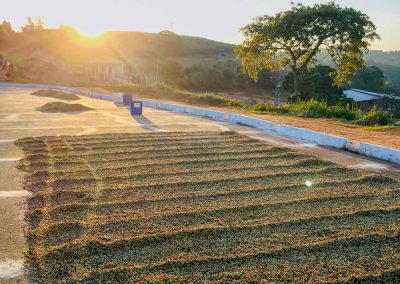Pulped Natural
Fruit Removal: The skin of the fruit is typically removed within 24 hours of harvest; mucilage is left intact on the seed
Fermentation: After skin removal, the mucilage-covered coffee is moved to a drying surface, where it will ferment as it is exposed to air and microorganisms until it reaches an inhospitable moisture content for them (11% moisture)
Drying Time: 10–15 days on average, typically on patios
Profile: Pulpy fruit, nutty characteristics, citric acid, chocolate, syrupy or creamy body, medium-low acidity but often noticeably fruity flavor

In most respects, Pulped Natural is a similar process to Honey, where the coffee cherry’s skin is removed and the seed is allowed to dry in its mucilage layer. Though the steps are almost identical, one of the key differences is that Pulped Natural process was developed in Brazil in order to speed the drying process, as the more traditional Natural process can take quite a bit longer to complete, which puts the coffee’s quality at greater risk. In Costa Rica and elsewhere, Honey processing is primarily used to affect the flavor characteristics of a lot.
As a result, the profile of most Pulped Natural lots from Brazil tends to be quite different from the majority of Honey lots, in that there tends to be less of an intense fruity flavor in these lots, erring instead toward a toasted-nut or a chocolate characteristic with some pulpy or boozy notes underneath.






